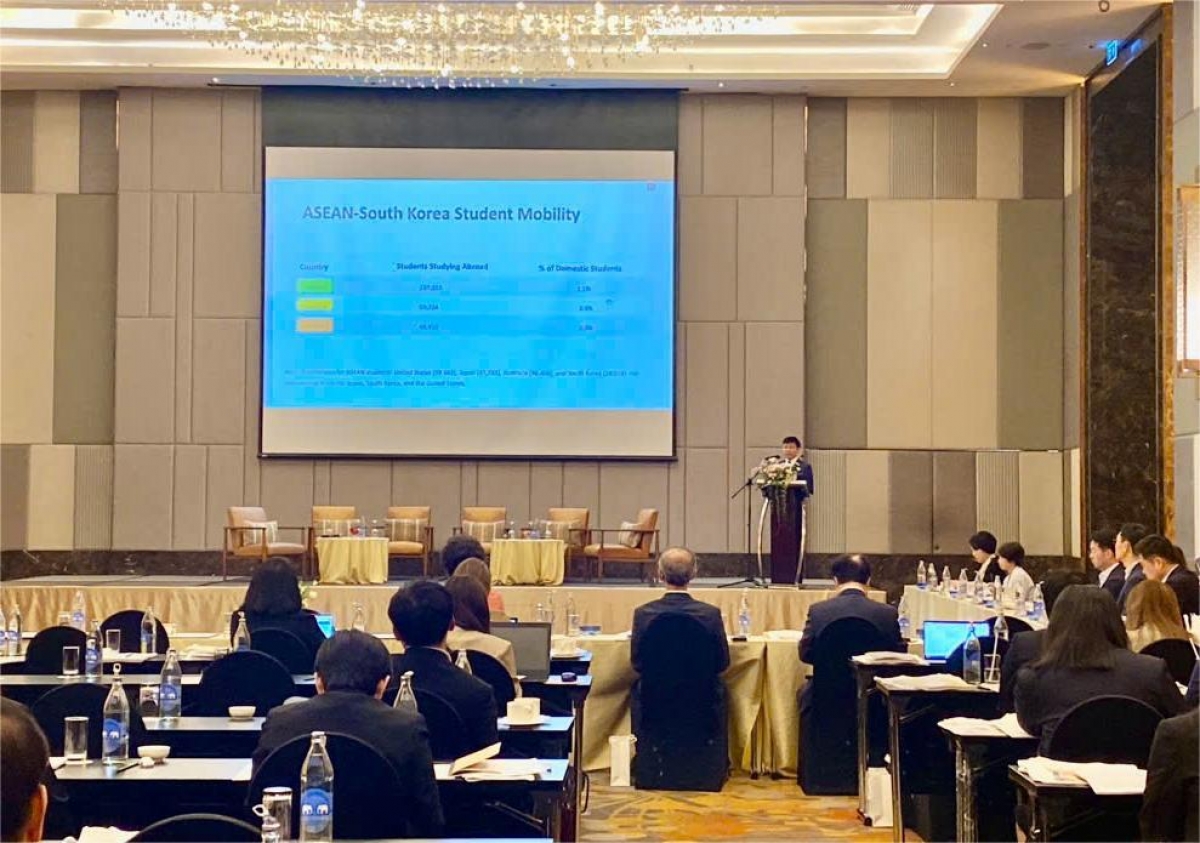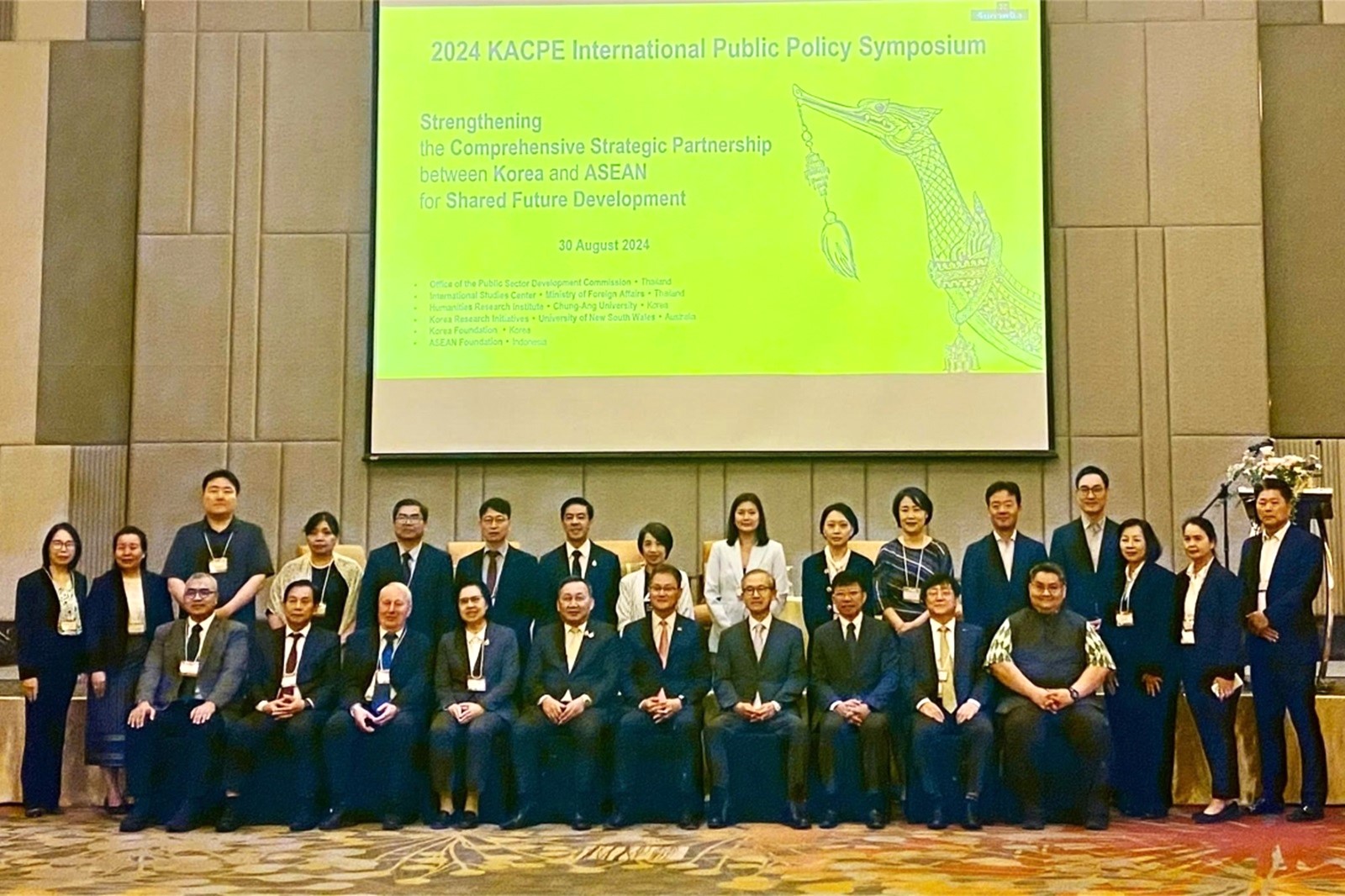On the sidelines of the international forum on public policy “Strengthening the Comprehensive Strategic Partnership between Korea and ASEAN for a Shared Future Development”, Prof. Dr. Hoang Anh Tuan - Rector of the University of Social Sciences and Humanities, Vietnam National University, Hanoi shared that in order for higher education in ASEAN countries to develop to a new level, the nature of this activity must change from “support” to “cooperation”.
Achieving many results but also having shortcomingsSoutheast Asian countries share a common view on education, which is demonstrated by the formation of common regional programs to support education and training development. The Southeast Asian Ministers of Education Organization (SEAMEO) established in 1965 can be a clear demonstration of this issue. Then, in 1995, the ASEAN University Network (AUN) was established… Along with the above official organizations, specific education and training activities are also implemented.
Prof. Dr. Hoang Anh Tuan, Rector of the University of Social Sciences and Humanities, Vietnam National University, Hanoi, delivered a speech at the international forum on public policy.
Affirming the good results achieved in decades of higher education cooperation between ASEAN countries and ASEAN countries with Korea, Professor Hoang Anh Tuan mentioned the proactiveness and positivity of universities in building common training programs, enhancing international languages in teaching, adjusting existing training programs towards deeper linkage so that students can cross-study and have credits recognized, international internships, etc.
However, higher education in the ASEAN community still has many shortcomings. “The existence of different credit systems among ASEAN universities is really regrettable because it hinders students from studying abroad and credit recognition; the scoring system also has differences; different study schedules between some countries are also barriers… These are completely unnecessary shortcomings that can be adjusted to promote stronger university cooperation in ASEAN” – Professor Hoang Anh Tuan shared.
ASEAN-Korea higher education cooperation grows stronglyLooking back at history, Professor Hoang Anh Tuan said that Korea had an early and proactive vision in cooperation with ASEAN countries when it established official relations in 1995. Over the past 30 years, along with results in all fields, the results of ASEAN-Korea higher education cooperation have also grown well. According to statistics in 2023, about 100,000 Southeast Asian students are studying in Korea, of which Vietnamese students account for the largest number (about 70,000 people).
Korean educational institutions and funding agencies have also provided great support to ASEAN universities in recent times, contributing to the development of ASEAN higher education in general. In particular, for Vietnam, Korean educational support funds and organizations have also made many contributions.
Delegates attending the Public Policy Forum: "Enhancing the comprehensive strategic partnership between Korea and ASEAN for common development in the future"
For example, at the University of Social Sciences and Humanities, Vietnam National University, Hanoi, Korean Studies has been taught since 1993, officially becoming an independent training major since 1995. The school is one of the first higher education institutions to train Korean Studies in Vietnam. Along with the training major, two other important organizations, the Korean Studies Association and the Korean Studies Journal, were also established in association with the Korean Studies major of the school. All three of these focal points receive very good support from Korean scientific and educational organizations such as the Foundation for International Exchange (KF)...
Next, in 2024, the University of Social Sciences and Humanities also became a co-founder of the Korean Studies Association in Southeast Asia (KoSASA) with the University of New South Wales (Australia).
However, it is a fact that higher education cooperation between Korea and ASEAN is still heavily subsidized through science funds or educational programs, thus leaning more towards unilateral aspects than bilateral or multilateral ones.
Korean universities have not yet established many cooperative training programs with ASEAN universities, but are still short-term exchanges and single credit exchanges.
Need to move from "support" to "cooperation" soon
The nature of “support” through educational funds or programs is highly contributory, quick and easy to operate. However, it does not achieve the ultimate goal of sharing training programs in a comprehensive, holistic and long-term manner, thereby promoting comprehensive higher education cooperation.
Therefore, to enhance the university relationship between Korea and ASEAN in general, and Vietnam in particular, it is necessary to soon promote the nature of "bilateral cooperation" instead of "unilateral assistance" as in the recent period - Prof. Dr. Hoang Anh Tuan shared.
Based on the advantages of each side, it is necessary to aim for a comprehensive solution of sharing expertise and complementing each other in training activities. ASEAN universities can support Korean educational institutions in the fields of language, culture, country studies, etc., while Korean universities can support ASEAN universities in fields related to Korean studies.
Comprehensive and shared cooperation for mutual development needs to be unified and implemented equally among higher education institutions in Korea, Vietnam and ASEAN countries.

